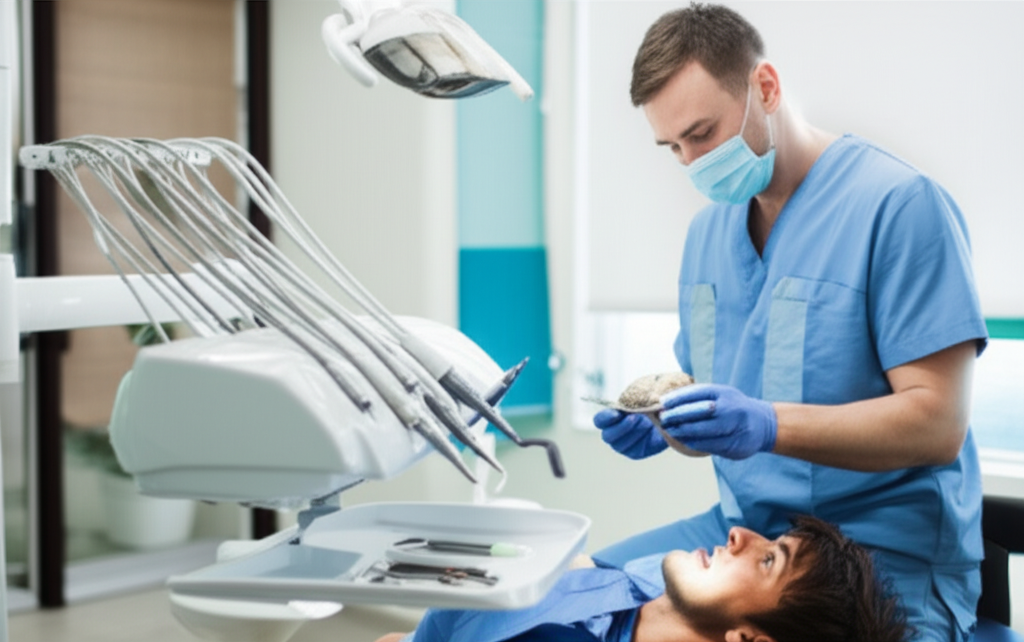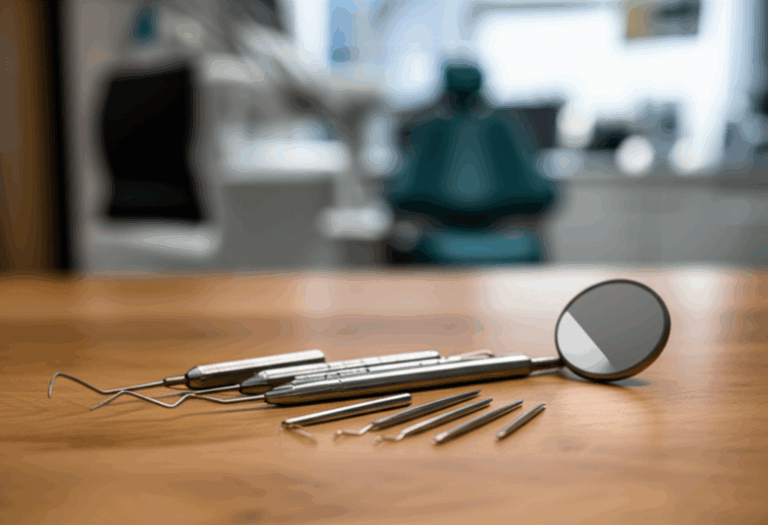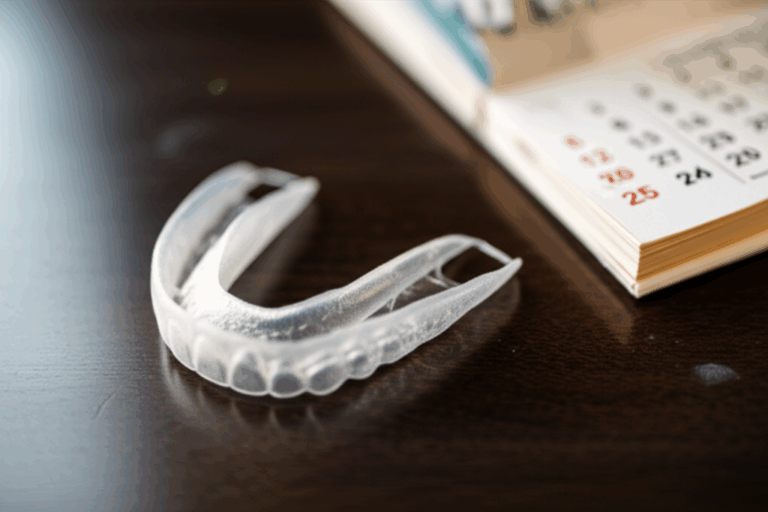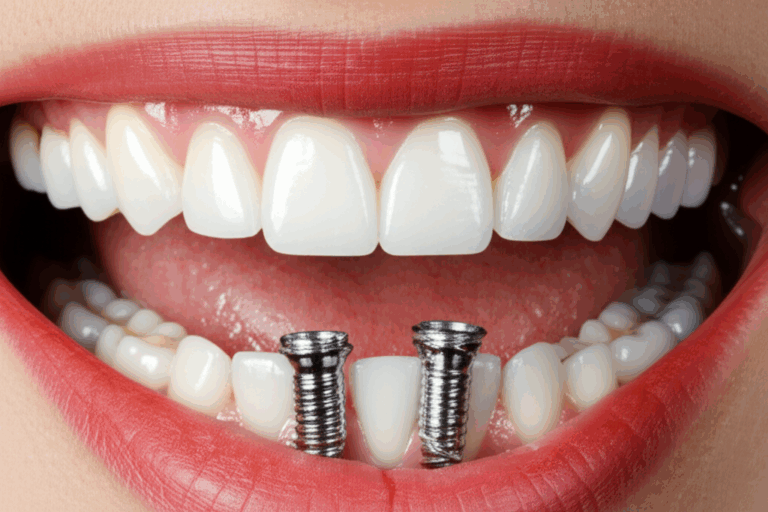
How to Work as a Dentist in Australia: Your Comprehensive Guide
Have you ever wanted to work as a dentist in Australia but aren’t sure where to begin? Maybe you’ve heard people talk about the good job chances, sunny cities, or great work-life balance. But when you start looking into it, everything gets confusing—lots of rules, tests, visas, and a job market that doesn’t look like where you’re from. If you’re lost or wondering, “How do I actually work as a dentist in Australia?” this guide is here to help.
This guide is for everyone—whether you just finished dental school in Australia or you’re an experienced dentist from another country. We’ll walk you through the process step by step, explaining what to do and why. Think of this as your friendly roadmap, written for real people with real questions.
In This Article
- Introduction: Why Choose Australia for Your Dental Career?
- Understanding Key Regulatory Bodies
- Pathway 1: For Australian-Trained Dentists
- Pathway 2: For Internationally Qualified Dentists (IQDs)
- Visa and Immigration for International Dentists
- Finding Dental Employment in Australia
- Life and Work as a Dentist in Australia
- Overcoming Challenges & Maximising Success
- Conclusion: Your Future in Australian Dentistry Awaits
Introduction: Why Choose Australia for Your Dental Career?
First things first: Why work as a dentist in Australia?
Australia gives you both good job chances and a nice lifestyle. The health system wants and respects dental workers, Australian work culture tries to keep a good work-life balance, and the cities are active and full of different people. A lot of Australians also care deeply about their teeth, and there is a growing need for more dentists—especially in country towns and small cities. Whether you want to work in busy Sydney or help people in a rural town in Queensland, you can do work that means a lot.
What about being new here? Dentists from overseas make up about a quarter of all dentists in Australia, so you won’t be the only one learning all this stuff. The pay is strong, rules are clear, and the culture is friendly and open to everyone—it’s no wonder so many people want to come.
Understanding Key Regulatory Bodies
Before you see your first patient, you need to know who sets the rules. Think of these groups as the ones who set up how dentistry works in Australia.
The Australian Dental Council (ADC)
The ADC is the main group that checks if dentists who trained in other countries have the right skills. They run the main exams you need to pass if you trained overseas. Pass those and you can apply to be a dentist here.
Dental Board of Australia (DBA) and AHPRA
The DBA makes the rules for how dentists act and work. They team up with the Australian Health Practitioner Regulation Agency (AHPRA), who handle the registration process and check you meet all the rules for working as a dentist.
Department of Home Affairs
If you’re not from Australia or New Zealand, you need to deal with the Department of Home Affairs for visas and immigration. They decide if you can move to Australia and work as a dentist.
Keep these three names in mind—they come up a lot.
Pathway 1: For Australian-Trained Dentists
If you got your dental degree in Australia, well done! Your pathway is usually simpler, but there are still a few things you must do.
Accredited Qualifications
Your degree has to be from an Australian dental school that is officially recognised by the Dental Board of Australia. Most Bachelor of Dental Surgery (BDS) or Bachelor of Dental Science courses are ok. If you went to main universities like the University of Sydney or Melbourne, you should be fine.
AHPRA Registration Process
After you finish school, you need to apply for provisional registration through AHPRA. This lets you start working under supervision (like an internship). Then after your supervised period, you can apply for general registration so you can practice on your own.
- Provisional Registration: For working under supervision while you finish your training.
- General Registration: For working as a dentist independently.
Ongoing Requirements: CPD and Professional Indemnity Insurance
Dentistry keeps changing, so you have to keep learning:
- CPD (Continuing Professional Development): 60 hours every three years (at least 15 hours each year).
- Professional Indemnity Insurance: You must have insurance in case something goes wrong at work.
You need these so patients are safe and you’re protected too.
Pathway 2: For Internationally Qualified Dentists (IQDs)
Now, the pathway for dentists who trained outside Australia is a bit more tricky, but many people have done it before. It takes planning and patience, but it’s possible.
Step 1: Initial Eligibility & English Language Proficiency
First, you have to check if the ADC accepts your dental degree. Some graduates—like those from New Zealand, the UK, or a few other places—might be able to skip some steps. Most people will need to do the ADC assessment pathway.
English Language Proficiency:
If English is not your main language, you’ll need one of these tests:
- IELTS Academic: At least 7.0 overall and 7 in each part.
- OET (Occupational English Test): At least a B in each part.
These tests are here to make sure you can speak and understand English well enough to work safely.
Step 2: The Australian Dental Council (ADC) Examination Process
The ADC exams are the main step. Here’s how they work:
ADC Written Examination
- Format: Multiple-choice questions testing your dental knowledge and decision-making, based on what Australian dentists need to know.
- Cost: About $2,200 AUD.
- Pass Rate: Around 55-65% on the first try.
These questions check if you can think like an Australian dentist, not just remember facts.
ADC Practical Examination
- Format: Checks your hands-on skills with fake teeth and real-world scenarios.
- Cost: $5,200 to $5,800 AUD.
- Pass Rate: Usually 60-75% on the first try.
Tip: Join study groups, look for ADC preparation courses, and don’t give up if you don’t pass the first time. Many people need more than one try.
Alternative Pathways
- Direct Recognition: Some dental programs from other countries are already recognised. Dentists from New Zealand or some UK schools might not need the full ADC exam process.
- Trans-Tasman Mutual Recognition: If you trained in New Zealand, you might be able to register directly.
Step 3: AHPRA General Registration Post-ADC
After you pass all exams, you can apply to AHPRA for registration.
You’ll need:
- Proof of your exams and degree.
- Proof of English skills.
- Police checks (for all countries you’ve lived in).
- Good standing letter from your local dental board.
Most people register as a General Dentist, but there are other types for specialists or people planning short stays.
How long does it take? Between 18 and 36 months for most people from when they start the process to full registration. It takes time, but it’s worth it.
Visa and Immigration for International Dentists
If you come from overseas, you can’t skip the paperwork. But don’t worry, here’s what you need to know.
Key Australian Visa Options
1. Skilled Independent Visa (Subclass 189):
- No sponsor needed.
- You must be invited, based on your skills and points.
2. Skilled Nominated Visa (Subclass 190):
- You need a state or territory to nominate you.
- This can make things faster.
3. Skilled Work Regional (Provisional) Visa (Subclass 491):
- For people willing to work in country or regional areas.
- May be easier to get, plus can lead to permanent residency.
4. Employer-Sponsored Visas:
- Temporary Skill Shortage (Subclass 482)
- Employer Nomination Scheme (Subclass 186)
If you already have a job offer, your boss can sponsor your visa.
SkillSelect & Expression of Interest (EOI)
Australia uses a points system: your age, experience, English ability, and other things all count. You start by making an Expression of Interest on SkillSelect—think of it as raising your hand and saying you want to work here.
Handy tip: Use the dentist code—252311—when you fill out forms.
Finding Dental Employment in Australia
Let’s say you finished all your tests and got your visa. How do you get a job? The good news: there’s steady need, mainly outside big cities.
Where to Search for Jobs
- Dental Recruitment Agencies: They know the business and have great contacts.
- Major Job Websites: Try Seek, Indeed, and Dental Jobs Australia—there are always dentist jobs listed.
- Australian Dental Association (ADA) Job Board: A trusted job site just for dental workers.
- Networking: LinkedIn, meetings, and personal connections go a long way.
Job Market Insights & Considerations
Australia’s country areas have a real shortage of dentists—up to 30% fewer per person than the cities. Big cities like Sydney and Melbourne are more competitive, but still have opportunities. Look at places like Adelaide or Perth too. Working for the government is steady and the pay is set; private clinics can pay more if you have experience.
- Average Salary (Experienced): $120,000 – $180,000+ (private clinics often pay best).
- Entry-level Salary: $70,000 – $100,000.
- Specialist Salary: $200,000 – $350,000+.
How to Stand Out
- Fix Up Your Resume: Show off all your training and experience.
- Practice for Interviews: Aussie bosses like dentists with good people skills who can explain things clearly.
- Try Regional Jobs: Not only is demand higher, but it can help with your visa too.
Life and Work as a Dentist in Australia
Let’s look at what it’s really like working and living in Australia.
Average Salary & Earning Potential
We talked about pay above, but remember—income changes depending where and how you work. City clinics, kid’s dental clinics, country health centers, cosmetic clinics…each one pays differently and has its own vibe. Good pay is the norm and helps you get settled here.
Work Culture & Patient Care
Australian dentists put patients first. Being able to explain things in plain English matters as much as your skills.
- High Ethics: Dentists are expected to be honest and trustworthy.
- Clear Communication: Use simple, caring language with patients.
Continuing Professional Development (CPD)
You need to keep learning so your registration stays current. That’s 60 hours of CPD every three years—you can do this through workshops, online learning, or clinical courses.
Professional Indemnity Insurance
Accidents can happen. That’s why you need insurance—it protects you and your patients.
Work-Life Balance
Imagine finishing work and going to the beach or having a BBQ with family. That’s reality for many dentists here. Australians value their down time as much as their work.
Overcoming Challenges & Maximising Success
Let’s be real—starting over somewhere new can be tough. You might have trouble with:
- Getting Used to Aussie Ways: Every country is different.
- Learning a New System: Even with experience, the way things are done might feel odd at first.
- Exam Stress: The ADC exams are challenging. But don’t give up.
How to Succeed
- Find a Mentor: An experienced Aussie dentist can help you settle in.
- Join Dental Groups: Try the ADA and local events.
- Keep Asking: Be curious and reach out to others for help.
Case Studies: Real Journeys
Dr. Priya Singh (India): Dr. Singh passed the ADC exams after a couple tries, found a great job in country Queensland, and got a regional visa—and later permanent residency. Working outside the big city paid off!
Dr. Mark Davies (UK): With his UK degree and mutual recognition, Mark registered fast and soon got a job in private practice in Melbourne.
These stories show there’s more than one way to have a good life as a dentist in Australia.
Conclusion: Your Future in Australian Dentistry Awaits
Starting over in a new country and job is a big step. But if you take it one step at a time, working as a dentist in Australia can be rewarding and even life-changing.
Key Points:
- Work out which process applies to you: Aussie graduate or overseas-trained.
- Get started on your exams and paperwork early. Don’t forget English tests and police checks.
- Pick the right visa—country jobs often make things faster.
- Use your network and professional groups to find jobs that suit you.
- Be flexible and patient—success is about learning, asking for help, and not giving up.
You don’t need to do it alone. Check the Australian Dental Council, AHPRA, and Home Affairs websites for new info. When in doubt, ask around—most dentists are happy to help newcomers.
One last thing: Australia’s dental world welcomes caring, skilled dentists from everywhere. If you’re ready, start your journey today. Take the first step, then the next. You got this!
Frequently Asked Questions
1. How long does it take for an internationally qualified dentist to be fully registered?
Usually between 18 and 36 months, from exams and English tests to paperwork and visas.
2. Is job demand high for dentists in Australia?
Yes, especially in country and regional areas where dentists are needed most.
3. Are ADC exams really tough?
They’re challenging but fair. If you study and don’t give up, lots of people pass—sometimes after a second go.
4. Do I need to work in a city?
No! Country jobs have high demand and may help your visa or residency too.
5. How do I keep learning?
You need 60 hours of CPD every three years. The ADA has great resources for this.
Where to Learn More
Interested in the newest technology or want to build your dental skills? Check out a digital dental lab for what’s new in dentistry, or try our dental practical guide for easy, helpful tips.
If you’re an overseas-trained dentist and ready to try, Australia is waiting—open, friendly, and in need of your skills. Get started today!








